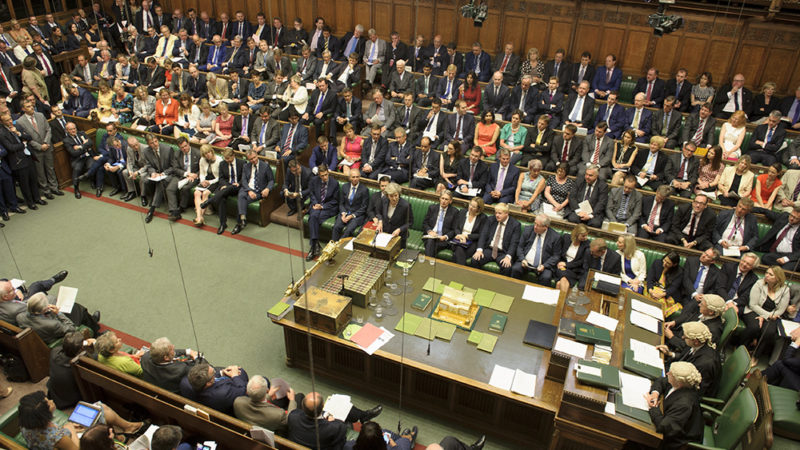
To look back over the events of the two years since Article 50 was triggered is to look back at a series of disasters that follow a predictable pattern. First the Prime Minister considers a moderate, cross-party solution to satisfy MPs across her party, then the European Research Group rejects that idea, and ultimately the government suffers a heavy loss.
The casual observer would reach for the maxim that insanity is doing the same thing over and over again and expecting different results. Is Theresa May a skilled politician? No, but it is also untrue to say that her party management difficulties are completely of her own making. The issues that are creating our current predicament – with a government that has the confidence of the Commons in theory, but cannot pass legislation in reality – are evidence of a deeper constitutional issue. That issue is the Fixed-Term Parliaments Act 2011.
Thanks to our first-past-the-post system, the UK usually has majority governments. It is supposed to produce a hung parliament result only very occasionally, though that is becoming a more regular occurrence. In theory, what should happen under these minority government conditions is that the ruling party works with small parties to get its programme passed. This tends to keep business uncontroversial, with a government moderating its positions. And yet this is clearly not the situation we are in with Brexit.
The government’s adoption of a position designed to please the right of the Conservative Party may have been able to stand up before the introduction of the FTPA. If it looked as if the government might struggle to win a key vote in parliament, it used to be the case that it could be designated as a ‘confidence vote’. Upon losing such a vote, the government would dissolve and call an election in order to seek a mandate to pass the legislation. Backbenchers in the ruling party would then only vote against the motion if they wanted to bring their own government down and trigger an election.
The problem we face is that the Fixed-Term Parliaments Act has removed the government’s ability to designate key votes as confidence votes. Under the terms of Section 2(4) of the Act, the only motion that can bring down a government is “That this House has no confidence in Her Majesty’s Government”. It must always be a standalone motion in parliament, and cannot be tagged onto other motions to ensure party discipline. It is for this reason that 118 Conservative MPs were able to vote against Theresa May’s deal on 15th January, then vote that they still had confidence in her the very next day.
What is to be done? I do not propose that the act be scrapped altogether. There are some advantages to it, for example removing the power for the Prime Minister to call an election for their own political advantage and building in breathing space for parliament to consider what to do next after bringing down a government. But change is needed. Let’s scrap section 2(4) and replace it with a power for either the Prime Minister, the Leader of the Opposition or a suitable number of other MPs to designate key votes as confidence votes. That way, Jeremy Corbyn won’t merely be able to say “pass your Brexit deal or make way for a government that will” – he will have the legal power to make that happen.



More from LabourList
Haigh: We won’t shut ticket offices or cut jobs – or nationalise water
Lou Haigh to reveal ‘roadmap’ for public ownership of railways within first term
Rochdale Labour says brick thrown at candidate’s home with ‘f*** Labour’ note